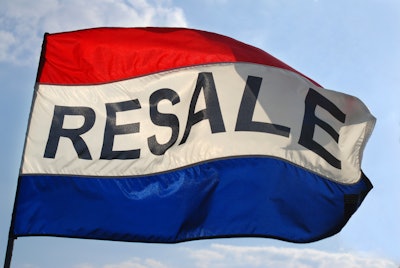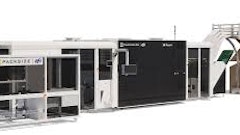
In today’s economy, we’re seeing more and more people out shopping for pre-owned goods. Retailers have realized this opportunity and are jumping on the bandwagon. For instance, REI, a popular outdoor recreation store, reported that its pre-owned sales growth in 2021 was 86%. While that number is already impressive, it is expected to grow even more as the business expands its online resale and trade-in program to all retail locations. This is just one story among so many retailers—major brands like Target, Ikea and Lululemon are also expanding resale programs. REI’s success is proof that, by extending the lifespan of a product, companies can meet better sustainability goals and ease logistical supply chain issues while growing revenue.
Supply chain and sustainability
Most Americans have felt, in some way, the effects of supply chain issues in the last couple of years. We see it on the shelves at the grocery store, at the gas pumps and in our favorite clothing stores, just to name a few. And when one gets into the handling of returns – without an efficient program to execute– it can be costly and messy to handle and process. Dispositioning is expensive too, often costing more than the item’s value– especially if it’s less than a few dozen dollars. Additionally, there are items that end up in landfills because the economics of recycling or returning them to the vendor doesn’t make sense. In fact, about 10% of all returns end up in a landfill. And globally, 80% of discarded textiles are doomed for landfill or incineration. Less than a quarter are actually reused or recycled. Companies expanding initiatives to actively incorporate re-commerce are not only making a move that will take the stress off the supply chain, but they are paving the way for positive change where sustainability and returns are concerned.
Consumers are increasingly rejecting the throwaway culture and becoming more interested in how their shopping habits could be contributing to sustainability and the environment. More than 75% have said companies could be doing more to help them make decisions that improve environmental outcomes. Many of these consumers care so much that they have said they will shift their buying habits so that they can support sustainable companies. In response, a slew of retailers are making the move to sell pre-owned goods. Gartner Research has shown that the resale market is expected to exceed $80 billion in value in the next 10 years. There’s no doubt the opportunity for revenue growth is within reach, but companies must find a way to successfully execute the integration of re-commerce. One of the best ways to do that is through the use of a fully automated end-to-end returns management system (RMS).
Overcoming obstacles
One of the biggest hurdles for any retailer that wants to embark on re-commerce is that streamlining the process to deliver a strong customer experience can also put a strain on the current workforce. On the contrary, the implementation of an (RMS) can not only support resale programs, but it can also extend operational capabilities. It frees up store employees and minimizes labor challenges by streamlining the returns process and improves operational performance by unifying data across the entire return lifecycle. This provides businesses the ability to gain deep insight, which enables them to successfully streamline overall operations and inventory from each and every return.
Companies that are taking on the business of reselling used items are not only able to provide customers access to items at a reduced price, but they’re also contributing to the reduction of unnecessary waste that would otherwise end up in landfills. Businesses can look at it as a way of extending the longevity of products that have already been made and sold, and because the production of new items can have real environmental impacts, many will find the opportunity to make fewer of those products as their resale business grows. The circularity of re-commerce can take a significant amount of strain off the supply chain, as well as reduce waste and carbon, and minimize environmental impacts. It can also identify best practices for product reuse or resell. This will aid in meeting sustainability goals and improve the entire process and gives business owners unprecedented visibility and actionable data that is invaluable.
A better way of execution
As consumers become more focused on eliminating the throwaway mentality, increasing product sustainability and considering how their habits could be contributing to the environment, companies are undoubtedly showing greater interest in re-commerce. Simply put, it’s smart. By aggregating data into a singular, accessible dashboard, an RMS can streamline the process from end to end, expediting the reselling of goods and making it an overall achievable goal.

![Pros To Know 2026 [color]](https://img.sdcexec.com/mindful/acbm/workspaces/default/uploads/2025/08/prostoknow-2026-color.mduFvhpgMk.png?auto=format%2Ccompress&bg=fff&fill-color=fff&fit=fill&h=100&q=70&w=100)







![Pros To Know 2026 [color]](https://img.sdcexec.com/mindful/acbm/workspaces/default/uploads/2025/08/prostoknow-2026-color.mduFvhpgMk.png?ar=16%3A9&auto=format%2Ccompress&bg=fff&fill-color=fff&fit=fill&h=135&q=70&w=240)









